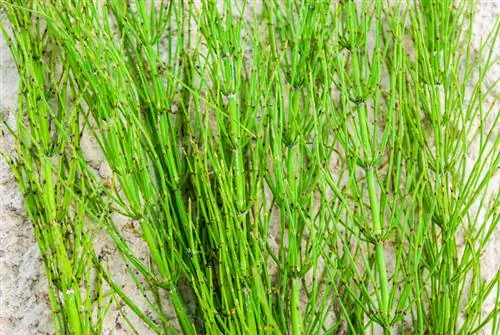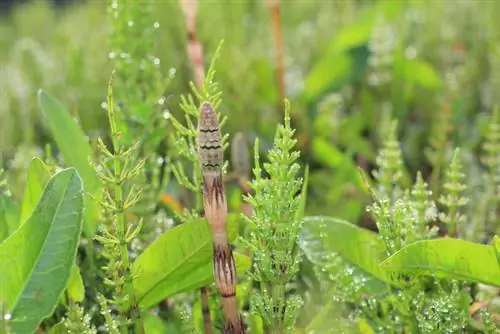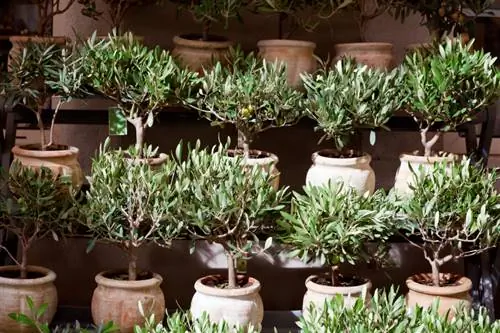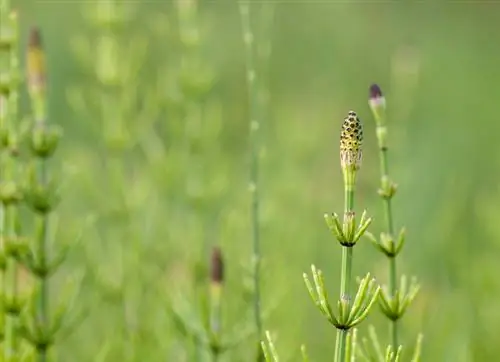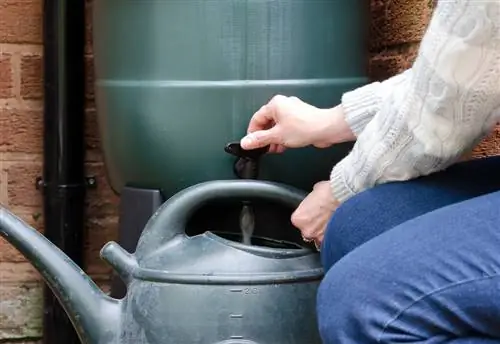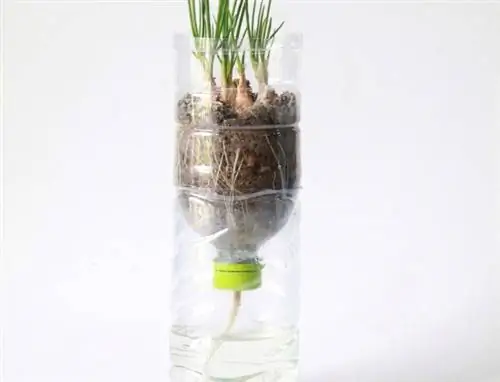- Author admin leonars@hobbygardeners.com.
- Public 2023-12-16 16:46.
- Last modified 2025-01-23 11:20.
Horsetail is extremely unpopular with gardeners because the plant is difficult to control once it has spread in the garden. Field horsetail is even considered a weed. Pond horsetail, winter horsetail or Japanese horsetail, on the other hand, are ornamental plants. However, it is better to grow these varieties in pots.
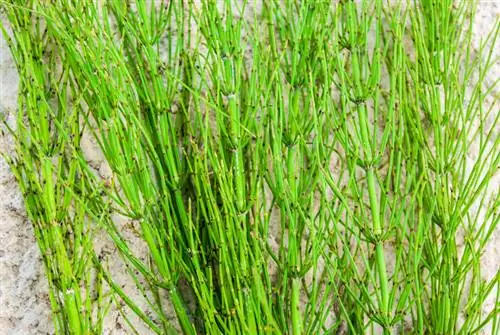
How to care for horsetail in a pot?
To care for horsetail in a pot, you need a deep, weather-resistant planter without a drainage hole. Fill it with nutrient-poor soil, sand or pebbles and always keep the horsetail moist. In winter the pot should be kept frost-free.
Why caring for horsetail in a pot makes sense
Horsetail is spreading rapidly in the garden. The plant is very robust. Neither waterlogging nor compacted soil can stop the spread, because the herb prefers such locations.
Because the roots go very deep, you can no longer get horsetail out of the garden once it has spread.
Propagation via the underground rhizomes can be easily prevented if you care for horsetail in a pot. The pot walls provide a natural root barrier.
This is what the planter should be like
Almost all horsetail species that you can grow in pots are marsh or aquatic plants. You need a planter that is not only weatherproof, but also has no drainage hole.
Since horsetail has deep roots, the pot should be at least 50 centimeters deep, and preferably 80 centimeters deep. The higher the diameter, the larger the plant inside will be.
Fill the bucket with nutrient-poor soil, sand or pebbles. Insert the horsetail and keep it nice and moist. Occasional short dry periods do not harm the horsetail. Rather, they ensure that not too many mosquitoes can reproduce in the planter.
Horsetail in a pot is not hardy
- Move the pot to a protected corner
- Place the container on Styrofoam or wood
- Cover the pot with bubble wrap
- Pour leaves or straw over the plant
- alternatively: dig in the pot
Horsetail is generally hardy, but in the pot the soil freezes too quickly in very cold winters. That's why you should overwinter the pot frost-free.
But don't forget to water occasionally so that the plant doesn't dry out completely.
Tip
Field horsetail is valued for its healing properties. If you don't have horsetail in your garden, it's better not to plant one. It's better to collect it in nature - be careful not to get the poisonous swamp horsetail.

